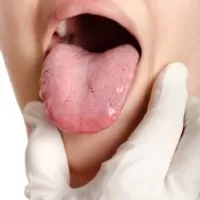Menopause and perimenopause can significantly impact oral health due to hormonal fluctuations, particularly the decline in oestrogen and progesterone. These hormones play a crucial role in maintaining the health of the teeth, gums, and bone structure. As oestrogen levels decrease, women may experience increased dryness in the mouth, a higher risk of gum disease, and changes in the structure of the jawbone. Additionally, hormonal shifts can affect saliva production, leading to dry mouth, which can contribute to tooth decay, gum irritation, and other oral health problems.
Teeth & Gums
Managing oral health during menopause involves maintaining good oral hygiene, staying hydrated, using fluoride toothpaste, and visiting the dentist regularly.

